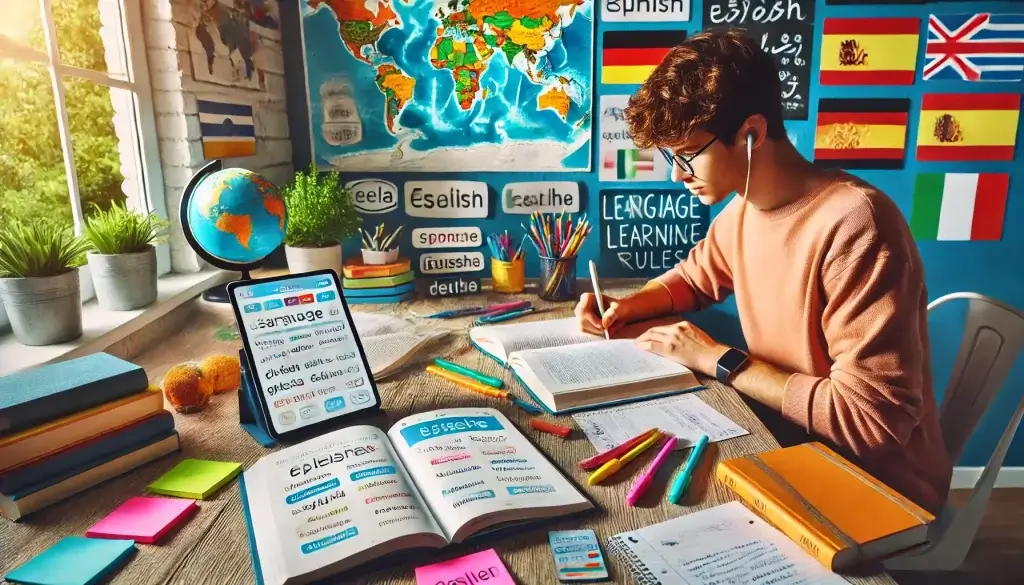Learning a foreign language can be an enriching and life-altering journey that opens doors to personal and professional growth. While learners tend to focus on speaking and listening skills, writing in the target language is also vital in strengthening grammar, expanding vocabulary, and cultivating critical thinking. One effective way of practicing writing in a new language is composing student papers such as essays or research assignments for class assignments, Using resources like scamfighter for an essay writing service review provides insight into improving writing quality and structure – read this article for strategies on honing academic writing to hone language skills!

Why Writing Matters in Language Learning
Writing can be one of the most daunting parts of language acquisition, as it requires an in-depth knowledge of grammar, sentence structure, and word choice. Writing, unlike speaking, where informal expressions or minor errors may go unnoticed, requires precision. Yet, practicing writing offers numerous advantages. Internalizing grammar rules, improving spelling, and building confidence in one’s own abilities are just some of the benefits gained through writing student papers that provide structured opportunities to hone these abilities further.
Choosing Topics That Inspire You
As one of the initial steps of writing student papers, selecting topics that interest you is key. Writing about subjects you care deeply about makes the experience enjoyable and motivates you to further explore a language. For instance, if environmental issues fascinate you, try writing an essay on climate change. Otherwise, explore cultural topics related to your target language, like local traditions or historical events – choosing relevant and engaging topics will naturally push you toward learning new vocabulary and expressions.
Building a Strong Foundation
Before embarking on writing, it’s essential to lay a firm foundation in language. This includes understanding basic grammar rules, common sentence structures, and key vocabulary. Below are some suggestions to strengthen your foundation:
- Read regularly: Reading articles, books, and essays in your target language exposes you to correct grammar and a diverse vocabulary.
- Conduct grammar exercises: Focus on specific areas essential for academic writing, such as verb conjugations and sentence agreements, for practice grammar exercises.
- Use a dictionary: Have both a monolingual and bilingual dictionary handy so that unfamiliar words are quickly defined for you, expanding your vocabulary.
Draft Your Paper
Now that you’ve chosen a topic and feel confident in your foundational skills, it is time to draft your paper using these steps:
- Outline Your Ideas: Before you dive in, create an outline that organizes your main points to ensure a logical flow in the paper you create.
- Write the Introduction: Start off your paper right by providing an engaging introduction that sets forth its purpose and offers some background. Introduce your topic, as well as give some context information.
- Establish Body Paragraphs: Each paragraph should focus on one idea and be supported with evidence or examples, using transition words to link your thoughts together.
- Concluding effectively: make sure to restate and summarize your thesis without adding new points at this stage.
Gaining Feedback to Enhance Improvement
Feedback is integral for developing writing skills. Share your papers with teachers, language partners, or native speakers who can offer constructive criticism; focus on any recurring errors and focus on eliminating them when assigning future assignments; take note of recurring mistakes and work to address them with future assignments; other areas to seek feedback in include:
- Grammar and Punctuation
- Sentence Structure
- Vocabulary Usage
- Overall Clarity and Coherence
Utilizing Technology for Aid Learning
Modern technology offers many tools that can enhance your writing practice, such as:
- Grammar checkers: Grammarly or LanguageTool can detect and correct grammatical errors in your writing.
- Language learning apps: Duolingo or Babbel are great apps that provide writing exercises to strengthen vocabulary and grammar.
- Translation tools: For best results, only use translation apps sparingly as proofreaders; their sole reliance can impede true language acquisition.
Revision As Part of Writing
Writing is an iterative process, and revision is where the magic happens. After finishing your first draft, set it aside for at least 24 hours before reviewing it with fresh eyes to identify areas where you can simplify complex sentences, replace overused words with synonyms, clarify vague ideas, or strengthen arguments with additional evidence.
Revising is key to improving the quality of your paper as it reinforces language rules and heightens attention to detail.
Writing Communities
Joining writing communities can provide invaluable support and motivation. Search online forums, social media groups, or meetups where language learners share their work and give each other feedback; engaging with people learning a foreign language can inspire you and keep you on track toward achieving your goals.
Integrating Writing With Other Skills
For optimal language learning experience, combine writing with speaking and listening skills. After writing a paper, summarizing its main points verbally or recording yourself reading aloud may help strengthen pronunciation as well as vocabulary and sentence structures that you used. Listening to lectures or podcasts related to its topic may offer further insights that enable you to enhance your writing abilities.
Utilize your written work as the foundation for discussions with peers or language partners, sharing and discussing your ideas will help solidify your comprehension while practicing conversational skills in your target language – creating a holistic approach to language proficiency development.
Writing student papers to practice a new language is an effective and rewarding way to hone your skills. By selecting meaningful topics, creating an excellent foundation, taking advantage of feedback mechanisms, and adopting technology solutions, you can make significant headway in your language learning journey. Writing is an effortful yet worthwhile pursuit – its results more than makeup for any effort required!

